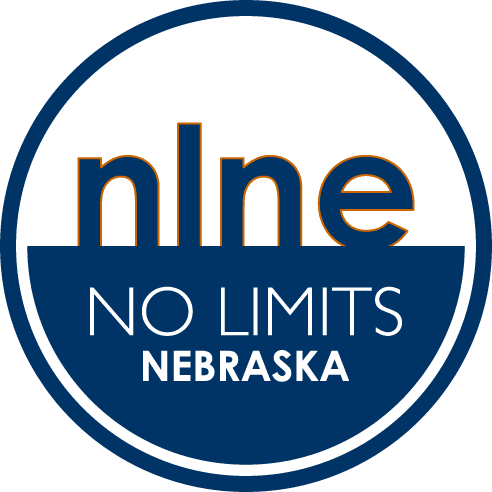Article by: Margaret Reist/Lincoln Journal Star
Photo by: Mischa Lopiano/Lincoln Journal Star
Initially, it was a little-sister thing. A tag-along-with-your-big-sister-to-a-summer-conference thing that very quickly became a Joanna Hejl thing, because the things she heard at that conference the summer before her freshman year stayed with her. They took root and grew into the passion that she’s convinced will define her future, and last week led to her testifying before a legislative committee.
Hejl, now an 18-year-old senior at Lincoln High, had always known smoking was bad for your health. But what caught her attention, what stuck with her from that presentation four years ago from the youth-led group No Limits, is how tobacco companies target women (You’ve come a long way, baby!) and young people, minorities and the LGBTQ community. How they exploit those groups, target the marginalized, the vulnerable. “That really drew me in,” she said. “That is a social justice issue.” And fighting for social justice pushed her forward, maybe, she thinks, because she grew up in Nebraska where being kind and welcoming is a part of the ethos, part of why the state’s marketing folks came up with the slogan “Nebraska Nice.” “That’s something social justice is about,” Hejl said. “Being kind and treating others fairly.”
So Hejl joined Nebraska’s No Limits, the youth-led anti-tobacco organization whose funding comes from the 1998 settlement with the big tobacco companies and is funneled through the state Department of Health and Human Services. She’s been on the group’s state board, been involved in the annual Kick Butts rally — the largest such event in the country, according to the No Limits coordinator. She’s gone to symposiums in Washington and in 2013 was named the Central Region Youth Advocate of the Year by the national nonprofit Campaign for Tobacco-Free Kids. She earned a fellowship for the Washington-based anti-tobacco nonprofit called the Truth Initiative. You had to be 18 to be eligible. She convinced them to accept her when she was 17.
When she was in Washington, she attended a training on how to talk with senators — a system called “hook, line and sinker” she still uses when she’s trying to convince lawmakers to support her cause. On one of those trips to Washington, Hejl learned something else about herself: That her passion for social justice is fueled by a love of lobbying. She jumped in on her first trip to Washington, finding herself and a friend standing outside then-Sen. Ben Nelson’s office, convincing themselves to walk in.
But here’s the thing about lobbying: It’s easy when the lawmaker agrees with you. It wasn’t until later, when she went to Rep. Adrian Smith’s office to argue for a congressional bill, that she knew she loved it. She was arguing a point about funding tobacco prevention programs, a provision in a larger bill connected to the Affordable Care Act. And so Smith was not terribly receptive. He made arguments against the bill; Hejl and her colleagues made arguments for it. And so it went, until Smith stood, stuck out his hand and thanked the young people for their time and interest. “It was at that moment we knew we were in the right, and he couldn’t make any points against us,” Hejl said. “That really made me want to advocate and lobby, in that very moment. It was exhilarating.”
Hejl’s penchant for advocating and leadership has been fed by the Nebraska Human Resource Institute, an organization that pairs school children with university students to develop young leaders. She began when she was 6, and is still a part of the organization and its leadership development program at Lincoln High. “I definitely think having a background in leadership, relationship building and being a positive force definitely influenced me to be more involved in the anti-tobacco issue,” she said.
She’s applying to colleges now, leaning toward political science or public policy. She wants to be a public health professional some day, continue her focus against tobacco, to work on public policy. As a high school student, the fight against tobacco takes up a lot of her time, but not all of it. She’s been on student council. She’s loved theater since she was in her first production at the Haymarket Theatre in second grade and has been involved in Lincoln High’s theater program. She’s an accomplished Irish dancer. Even though her brother and sister attended Southeast, she came to Lincoln High to be part of the International Baccalaureate program. But she opted out of that program so she could spend a year in Germany as an exchange student. She spent nine months in Germany, learned a lot about herself, the culture and the language.
Once home, she started a club at Lincoln High called Changemakers. It’s an advocacy group, still in its infancy. Hejl talks about the anti-tobacco movement because that’s where her experience lies. But she welcomes anyone interested in advocating for a cause, regardless of the topic. Because, Hejl said, her generation doesn’t seem interested in politics and that must change because there’s too many important issues that will affect her and her peers down the line. “We have to have a say (on those issues), and people aren’t just going to ask us,” she said. “We need to say this is important and this is what you need to do about it.” It’s why she testified last week before the Legislature’s Revenue Committee on Chairman Mike Gloor’s bill to raise the cigarette tax. She testified for a similar bill before. And there’s no question: If need be, she’ll be back.
To read the full article click here.

